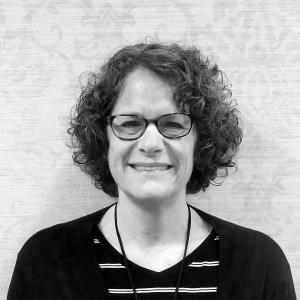Nicole Faghin

Collecting Stories at the National Working Waterfronts and Waterways Symposium 2018
Collecting Stories at the National Working Waterfronts and Waterways Symposium 2018 is a project of Maine Sea Grant, College of the Atlantic, the Island Institute, and the National Working Waterfront Network.
National Capital Contracting
Nicole Faghin is a coastal management specialist affiliated with Washington Sea Grant, an organization dedicated to fostering sustainable use of marine resources. Her professional endeavors are primarily centered around the Puget Sound region, where she engages with waterfront communities. Faghin's work encompasses a broad spectrum of issues, including the preservation of working waterfronts, the mediation of land use conflicts, the addressing of environmental concerns, and the advancement of workforce education. Her role often involves interfacing with a diverse array of stakeholders, from local businesses to policymakers, to ensure the vitality and sustainability of these coastal areas. Faghin's commitment to coastal management is not merely professional; she has a personal connection to the waterfront, which fuels her passion for her work. Additionally, she plays an active role in the National Working Waterfront Network, an initiative that aims to unite various interests within waterfront communities to foster collaboration and effectuate positive change. Her involvement with this network underscores her dedication to the cause of working waterfronts and her belief in the power of collective effort.
Scope and Content Note
The interview with Nicole Faghin, conducted by Corina Gribble and Ela Keegan from the College of the Atlantic, provides an in-depth look into the complexities of managing working waterfronts. Nicole Faghin, a coastal management specialist with Washington Sea Grant based in Seattle, WA, describes her work in the Puget Sound region of Washington and the challenges of the waterfront having a large industry, land-use conflicts, maritime-related issues, environmental issues, an aging population, and the need to encourage younger generations to work on waterfronts. She highlights the importance of having cohesive legislatures to lobby for the needs of individual waterfronts, the interdisciplinary use of the waterfront in the Putrid Sound region, and of learning from each other. Faghin discusses the multifaceted challenges faced by waterfront communities in the Puget Sound region, including the preservation of the working waterfronts, resolving land use conflicts, addressing environmental issues, and enhancing workforce education. She highlights successful models for supporting these waterfronts, emphasizing the critical role of communication and collaboration among the diverse stakeholders involved. Faghin shares insights into her personal journey and connection to the waterfront, which has informed and enriched her approach to coastal management. The interview also delves into her involvement with the National Working Waterfront Network, where she contributes to the collective efforts to bring together stakeholders from various sectors. Faghin underscores the importance of this network in facilitating dialogue, sharing best practices, and driving change within waterfront communities. The content of the interview is rich with examples of community engagement, policy development, and the strategic initiatives that Faghin and her colleagues employ to ensure the sustainability and resilience of working waterfronts.
Please Note: The oral histories in this collection are protected by copyright and have been created for educational, research and personal use as described by the Fair Use Doctrine in the U.S. Copyright law. Please reach out Voices@noaa.gov to let us know how these interviews are being used in your research, project, exhibit, etc. The Voices staff can help provide other useful resources related to your inquiry.
The NOAA mission is to understand and predict changes in climate, weather, oceans, and coasts, to share that knowledge and information with others, and to conserve and manage coastal and marine ecosystems and resources. The Voices Oral History Archives offers public access to a wide range of accounts, including historical materials that are products of their particular times, and may contain offensive language or negative stereotypes.
Voices Oral History Archives does not verify the accuracy of materials submitted to us. The opinions expressed in the interviews are those of the interviewee only. The interviews here have been made available to the public only after the interviewer has confirmed that they have obtained consent.
